地島観光情報
更新日:2021年11月22日
観光スポット
とっくりせ
岩がとっくりと杯の形をしています。
倉瀬燈台
倉瀬展望台
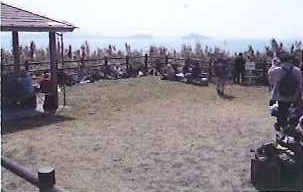
倉瀬燈台、大島のほか、天候がよければ志賀島、相島や50km先の沖ノ島を望むことができます。
祇園山
高さ約150mで、山の頂上に祇園様がまつられているのでこの名がつきました。
つばきロード
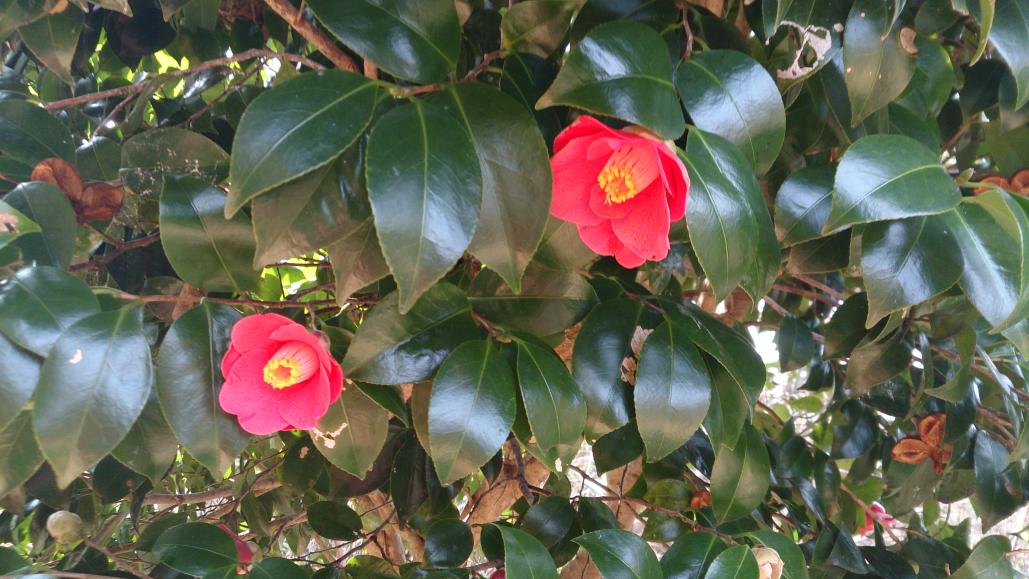
自生のヤブ椿が約6000本群生。遊歩道も整備され、ハイキングコースにはぴったりです。展望台からは玄界灘、響灘が一望できます。
沖ノ島展望台
地島で一番高い遠見山山頂にある展望台で、黒田藩番所跡もあります。天気のいい日には沖ノ島も展望できます。
遠見山
地島で一番高い山で186mあります。
大敷展望台
400段の階段を登ったところにあり、北九州方面まで一望できます。
猿毛山
海を渡ってきた一匹の猿が、この山に逃げ込んだとのいわれから、お猿様とも呼ばれています。
厳島神社
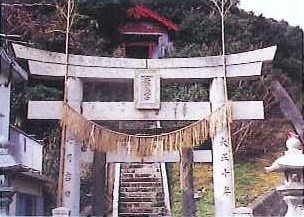
本殿には宗像三女神がまつってあり、地島の祇園山笠はここから出発します。
椿油加工場
例年11月頃椿の実を搾って椿油の精製がおこなわれています。
殿様波止
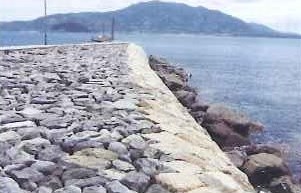
この波止は、黒田長政公の命により築かれたと言われています。このあたりは磯釣りが盛んです。
地島年間行事
3月
- 地島椿まつり
毎年3月の第2土曜日、島内には、自生のヤブ椿が約6000本あり、1月から3月ごろにかけて花を咲かせ、島を訪れる方々の目を楽しませています。
7月
- 地島祇園山笠
インフォメーション
案内所
道の駅宗像観光情報コーナー 0940-62-3811
市営渡船のお問合せ(宗像市交通対策課) 0940-72-2535
食事処
御食事処なごみ電話:0940-62-1264携帯:090-5292-1782
公共施設・その他
宗像漁協地島支所 0940-62-1172
駐在所(神湊駐在所) 0940-62-0110
宗像市営地島航路時刻表
| 便名 | 神湊発 | 泊発 | 白浜着 | |
|---|---|---|---|---|
|
行 き |
1 | 7時45分 | 8時00分 | 8時10分 |
| 2 | 10時05分 | 10時20分 | 10時30分 | |
| 3 | 12時20分 | 12時35分 | 12時45分 | |
| 4 | 15時10分 | 15時25分 | 15時35分 | |
| 5 | 16時40分 | 16時55分 | 17時05分 | |
| 6 | 18時20分 | 18時35分 | 18時45分 | |
| フェリー | ( 9時15分) | - | ( 9時40分) |
| 便名 | 白浜発 | 泊発 | 神湊着 | |
|---|---|---|---|---|
| 帰 り |
1 | 6時45分 | 6時55分 | 7時10分 |
| 2 | 8時40分 | 8時50分 | 9時05分 | |
| 3 | 11時30分 | 11時40分 | 11時55分 | |
| 4 | 14時10分 | 14時20分 | 14時35分 | |
| 5 | 15時55分 | 16時05分 | 16時20分 | |
| 6 | 17時30分 | 17時40分 | 17時55分 | |
| フェリー | (10時25分) | - | (10時50分) |
注:地島航路のフェリー便は、第2、第4水曜日のみ、運航します。
注:フェリー便以外は、毎日、旅客船「ニューじのしま」で運航します。
料金(片道)神湊~泊大人380円子ども190円
神湊~白浜大人410円子ども210円
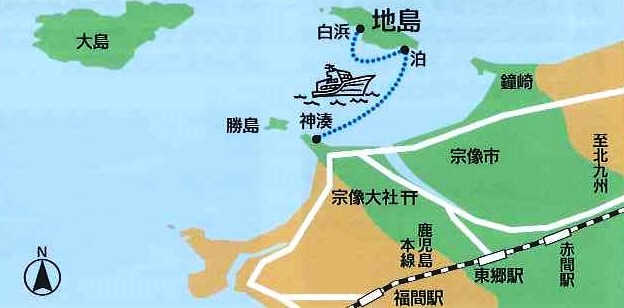
Jinoshima Island
Jinoshima is a mountainous, forested island off the coast of Fukuoka, famous for its roughly 6,000 wild camellia trees, which bloom from late January through March. The island is a popular day-trip destination, with two ports accessible by ferry from Konominato Port on the mainland. In 1996, two mountain roads were planted with camellia trees to create an attractive walking path along the length of the island. The route can be covered in under two hours.
Camellias
The thousands of camellia trees growing across the island bloom from late January through March. At the Jinoshima Camellia Festival in March, food stalls sell locally caught seafood, and there are musical performances. In fall, the mature camellia seeds are collected to produce camellia oil, which is used for cooking and as a moisturizer for the hair and skin.
Tomari Fishing Port
Jinoshima has two small fishing ports, Tomari and Toyoka, and the ferry stops at both. Tomari Fishing Port is closer to the mainland. Traces of the original stone wharf remain, which was constructed on the orders of Kuroda Nagamasa (1568–1623), the ruler of Chikuzen Province (modern-day Fukuoka).
Toyoka Fishing Port
Toyoka is the island’s smaller fishing port, located on the west side. The only shop and only restaurant on the island are at Toyoka. A small Shinto shrine, Maki-jinja, overlooks the port. A camellia-lined path leads from the port to Kurase Observatory on the northernmost tip of the island.
Itsukushima Shrine
This small Shinto shrine near Tomari Fishing Port venerates the Three Female Deities of Munakata, who protect sea routes. In July, residents of the island hold the Jinoshima Gion Yamakasa Festival to pray for protection from disease and disaster. Starting from Itsukushima Shrine, residents wheel a decorated float through the town, then transport it by boat to Toyoka Fishing Port before returning it to the shrine.
Fishing
One of the main industries on Jinoshima is fishing. Ceramic octopus traps can often be seen lined up on the shore at Tomari Fishing Port. Freshly cooked seafood is sold at stalls during the Camellia Festival. Common catches include octopus, squid, black sea bream, sea urchin, and abalone. Female ama divers once lived and worked on the island, free diving for shellfish, before rising water temperatures reduced the catches of abalone, sea urchin, and turban shells. Wakame seaweed flourishes off the southeastern coast of Jinoshima. The fronds are the most commonly used part of wakame, often in miso soup, but Jinoshima residents also eat the root (mekabu), which is usually boiled, chopped, and served on rice.
(This English-language text was created by the Japan Tourism Agency.)






PDFファイルをご覧いただくには、Adobe Readerが必要です。
Adobe Readerをお持ちでない方は、バナーのリンク先から無料ダウンロードしてください。